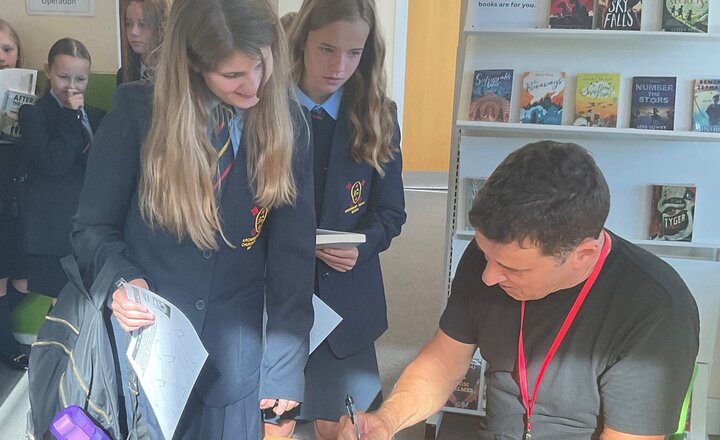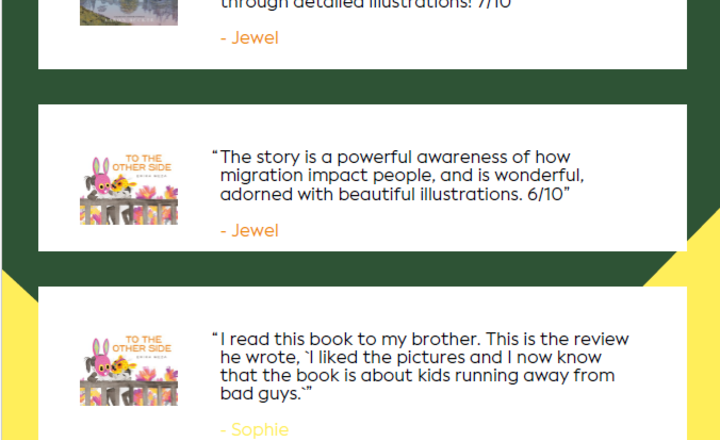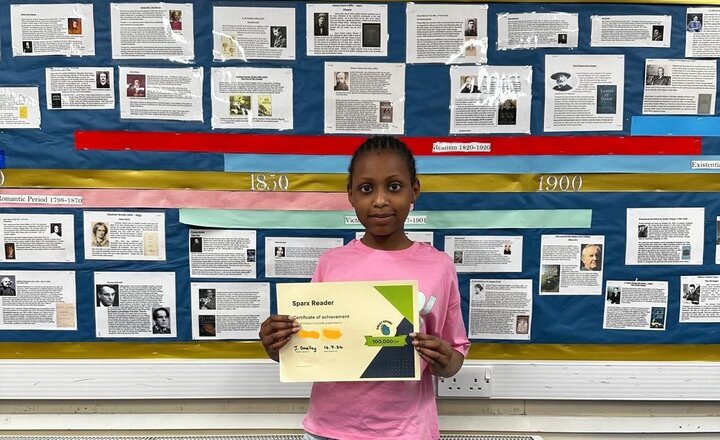Subject: English
CURRICULUM INTENT
English is vital for our personal growth and relationships and it is the foundation of all learning. Through our engaging curriculum, we aim to nurture our students’ abilities in their journey to be confident and inspiring writers, orators and readers, helping them to further understand the world around them.
We feel that fluent written English is imperative to success and we encourage all students to ‘let your light shine’ through the power and creativity of their written word. In order to develop literacy further, we explicitly teach morphology, etymology and ambitious Tier 2 and Tier 3 vocabulary, aiding in students’ success at school and beyond.
We believe it is essential to serve our students by providing them with life-long skills to communicate their opinions passionately, effectively and clearly, helping them to navigate the world of work and adult life. Many of our lessons incorporate oracy skills through the use of big questions, debate, speeches, reading aloud and discussion.
To encourage an enduring love of literature, we expose our students to a breadth of high-quality novels, plays and poetry from our rich Literature Canon, expanding their knowledge of diverse cultures and eras. We also enjoy a broad range of non-fiction and media texts, to help our students connect with the world around them. For instance, we celebrate activists, who shine the light of truth on areas of injustice in the world. Furthermore, we develop our students’ close reading skills, so that they are able to explore both literal and layered meanings within a text. The English department also celebrate reading through events such as World Book Day and whole-school reading initiatives.
In order to provide enrichment to our study of English, we organise extra-curricular events such as theatre trips, debating club and author visits.
We have a strong faith and belief in all students to achieve their full potential in our subject. The English Department promote the need for students to have resilience, confidence and independence in their English learning. In addition, we provide our students with the cultural capital that they need, so that all students, irrespective of their background, are able to remove barriers to learning and thrive both at school and in their life beyond Archbishop Temple Church of England High School. Each year, over 90% of our students pass their English Language and Literature GCSEs and many continue to study English at A Level at one of the outstanding sixth form colleges near us.
In conclusion, we hope that, through the light of Jesus and the power of the Holy Spirit, our young people will enjoy their English lessons and be given the understanding and English skills that they need to embark on the next stage of their journey.
‘Books give a soul to the universe, wings to the mind, flight to the imagination and life to everything.’ Plato
‘Let us remember: one book, one pen, one child and one teacher can change the world.’ Malala Yousafzai
‘Learning passes for wisdom for those who want both.’ Archbishop Temple
IMPLEMENTATION
Programmes of Study
Year 7
English Language: Students will begin by learning about the art of rhetoric and applying their understanding of persuasive writing to a range of non-fiction topics. Students will also have the opportunity to read a selection of Gothic texts and then respond creatively to this. After a good introduction to a variety of texts from the canon, we ask students to question the literary canon, and research and present a spoken presentation on an author from the literary canon.
English Literature: As an introduction to the canon and literature as a vehicle, students will study both Orwell’s ‘Animal Farm’ and Shakespeare’s ‘The Tempest’. Students will consider a range of poems with the theme of identity and have the opportunity to write their own poetry. In addition, students will read at least one novel as a ‘reading for pleasure’ class text.
Year 8
English Language: Writing styles to be studied and developed will include short stories, opinion articles and reviews, formal essays and dramatic monologues. Non-fiction and media texts studied will be based on topical issues and how people’s changing experiences and perceptions over time are reflected in texts. Students will also participate in formal group discussions. Finally, pupils will create their own short story.
English Literature: Reading will include a range of short stories from the 19th - 21st centuries, modern drama – ‘Our Day Out’, responding to thematic unseen poetry on the world around us, and at least one class novel in addition to pupils’ independent reading for pleasure. This year’s literary study will focus on Golding’s ‘Lord of the Flies’ in order to build on our understanding of the purpose of a literary text.
Sophistication of pupil response will be developed through increased focus on close analysis and essay writing skills.
Year 9
English Language: Students will read a range of non-fiction texts around the theme of injustice and respond under timed conditions, write their own ‘unseen’ narrative, have opportunity to develop their use of rhetoric through non-fiction writing, and present a five minute speech or presentation on a topic they are passionate about.
English Literature: Students will study Shakespeare’s Romeo and Juliet and study six poems on the theme of conflict. Students will then study ‘Of Mice and Men’, in addition to their own reading for pleasure. We intend to encourage criticality when studying a text, asking students to decide whether this text should be studied in schools or not.
Year 10
English Language: Students will follow the Eduqas English Language specification and cover the following areas: reading 20th century literature, creative prose writing, 19th and 21st century non-fiction reading, transactional writing.
English Literature: Students will follow the Eduqas English Literature specification and cover the following areas: anthology and unseen poetry, 19th century novel, 20th century prose/drama, Shakespeare.
Year 11
English Language: Students will follow the Eduqas English Language specification and further develop their skills and examination technique in the following areas: reading 20th century literature, creative prose writing, 19th and 21st century non-fiction reading, transactional writing.
English Literature: Students will follow the Eduqas English Literature specification and further develop their skills and examination technique in the following areas: anthology and unseen poetry, 19th century novel, 20th century prose/drama, Shakespeare.
IMPACT
Marking and Assessment
Students will complete at least one formal, written assessment every half term. This will give them the opportunity to demonstrate their knowledge, understanding and skills and will often take place under examination conditions. Students will receive written feedback on all assessments, identifying strengths and areas for development in order to facilitate further progress.
Examinations
English Language
Component 1: Reading 20th century literature and creative prose writing (40% of final grade)
Component 2: 19th and 21st century non-fiction reading and transactional writing (60% of final grade)
English Literature
Component 1: Shakespeare and anthology poetry (40% of final grade)
Component 2: 20th century prose/drama, 19th century novel and unseen poetry (60% of final grade)
Revision Guides / Resources
English Language
WJEC Eduqas GCSE English Language: Revision workbook (ISBN: 9780198359210)
English Literature
Text guides: CGP or York Notes for GCSE (9-1) – all GCSE texts available
Poetry: CGP GCSE English Literature WJEC Eduqas Anthology Poetry Guide for the Grade 9-1 Course (ISBN: 9781782943631),
CGP Grade 9-1 GCSE English Literature WJEC Eduqas Unseen Poetry Guide (ISBN: 9781782943655)
Staff Details
Ms J. O’Malley (Curriculum Leader for English)
Ms G. Bevins (Teacher of English)
Mrs A. Downing (Teacher of English with Drama)
Ms. B. Murphy (Teacher of English and Head of Year 8)
Mrs J. Steel (Teacher of English)
Mr S. Stringfellow (Teacher of English)
Careers and Progression
As core subjects, GCSEs in English Language and English Literature are studied by all pupils and are, of course, highly regarded by further education institutions, apprenticeship providers and universities. The reading, writing and spoken language skills developed in English are transferable to all other subjects and offer a sound basis for future study and life in the workplace. The future career choices for students of English are many and varied and include such sectors as media and marketing, performing arts, law, journalism and teaching.
English Curriculum Maps
Click on an image below and scroll through using the arrows.




